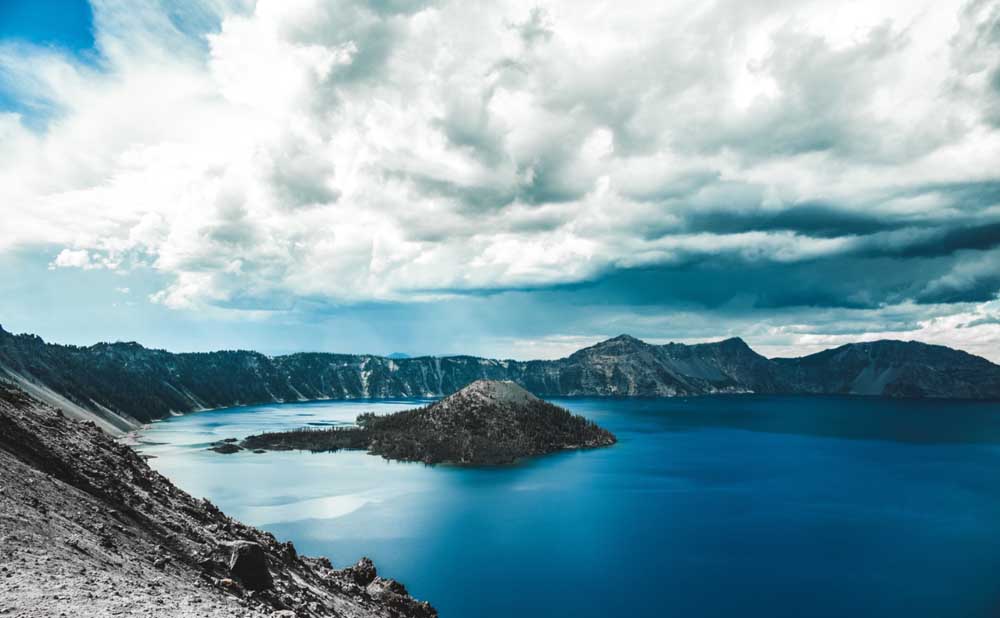Guest Column: We should share the beauty of public lands with new citizens
Published 9:00 pm Thursday, June 13, 2024

- Crater Lake National Park
June is National Immigrant Heritage Month and what better way to welcome our newest citizens than by sharing the beauty and opportunities of our state’s and nation’s public lands.
Our public lands and waters are some of our nation’s most treasured places. They provide our communities with clean water and air, habitat for fish and wildlife, and opportunities to escape the pressures of daily life and find freedom, adventure, and wonder in the outdoors. They belong to all of us, and everyone should have the opportunity to enjoy our public lands and have a voice in their management.
But that isn’t always the case, especially for new citizens. Economic hurdles, confusing entry fees and permit systems, and a general lack of diversity in outdoor spaces can discourage new citizens from using and enjoying our National Parks, Wilderness Areas, and Wild and Scenic Rivers. This is a problem both because the many benefits of these lands should be available to everyone and because we need more people supporting the protection of America’s wildlands, wildlife, and waters.
That’s why Oregon Wild, Vamonos Outside, GreenLatinos, Friends of the Inyo, and over 60 other community-led organizations around the nation are asking the U.S. Department of Interior, U.S. Department of Agriculture, and U.S. Citizenship and Immigration Services to share an America the Beautiful Pass with each newly naturalized U.S. citizen as a “Welcome to America” gift.
These passes cover entrance fees and day-use fees for public lands managed by the National Park Service, Bureau of Land Management, Bureau of Reclamation, U.S. Fish and Wildlife Service, Forest Service, and the Army Corps of Engineers. They are already available free of charge to U.S. military members and their families and a number of other groups.
Including newly naturalized Americans in that list would make new citizens feel more welcomed by their adoptive homeland and instill an even greater sense of patriotism and gratitude among those taking the citizenship oath. It would also help incentivize new Americans to get outside and explore our beautiful public lands and become more engaged in their long-term conservation and protection, which benefits all Americans.
Studies have shown that new citizens and people of color can face many hurdles in accessing and enjoying America’s public lands. Entry fees, parking passes, and online reservation systems are confusing for even the most seasoned hiker or backcountry skier. Add to that the cost of transportation, lodging or camping, and outdoor gear, and accessing our public lands can be pushed out of reach for many low-income and marginalized communities.
Agencies are also increasingly turning to “cashless” payment systems that only allow visitors to pay through debit or credit card, or, in some cases, via digital wallet (such as Google Pay and Apple Pay). For new citizens and others who may be unbanked, or who may not have access to, or comfort with, those electronic payment systems, this can create even greater barriers.
It may not be obvious to all, but a lack of familiarity with public lands and simply knowing what opportunities may exist nearby can be challenging. On this point, organizations like Vamonos Outside in Central Oregon are working to provide outdoor recreation access and opportunities to underrepresented communities and advance a more inclusive outdoor culture.
Providing an America the Beautiful Pass as a welcome gift to newly naturalized citizens won’t solve every problem that new Americans and persons of color face in accessing and enjoying our public lands, but it would be an important and meaningful step. It would help America live up to the promise that our spectacular National Parks, Wilderness Areas, and Wild and Scenic Rivers are treasures for everyone to use and enjoy, and help inspire a new generation of public lands defenders.
Do you have a point you’d like to make or an issue you feel strongly about? Submit a letter to the editor or a guest column.








